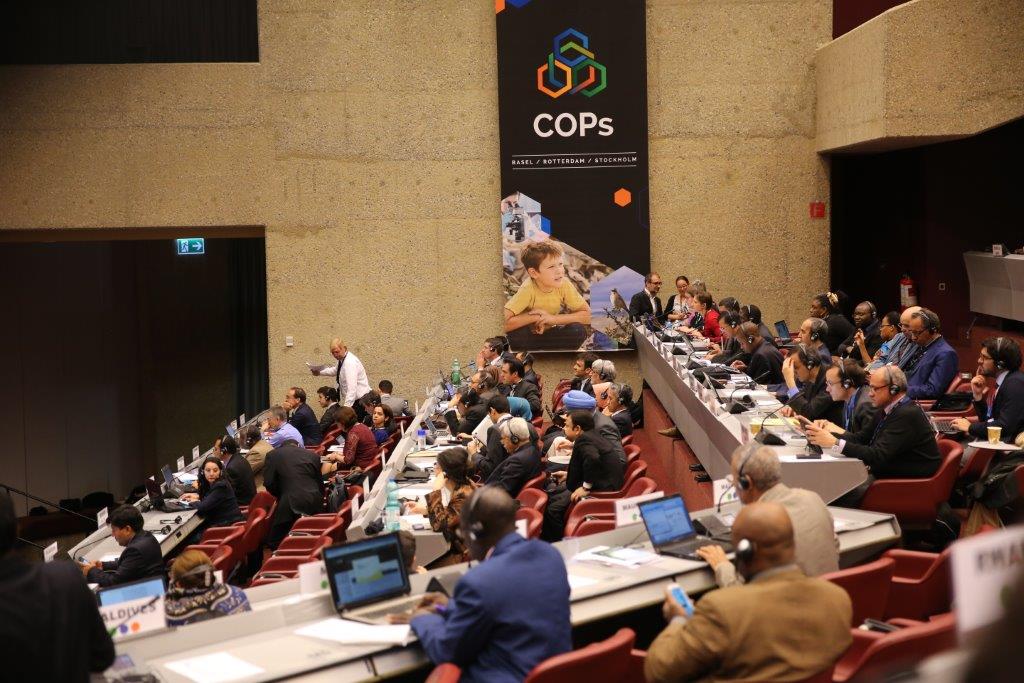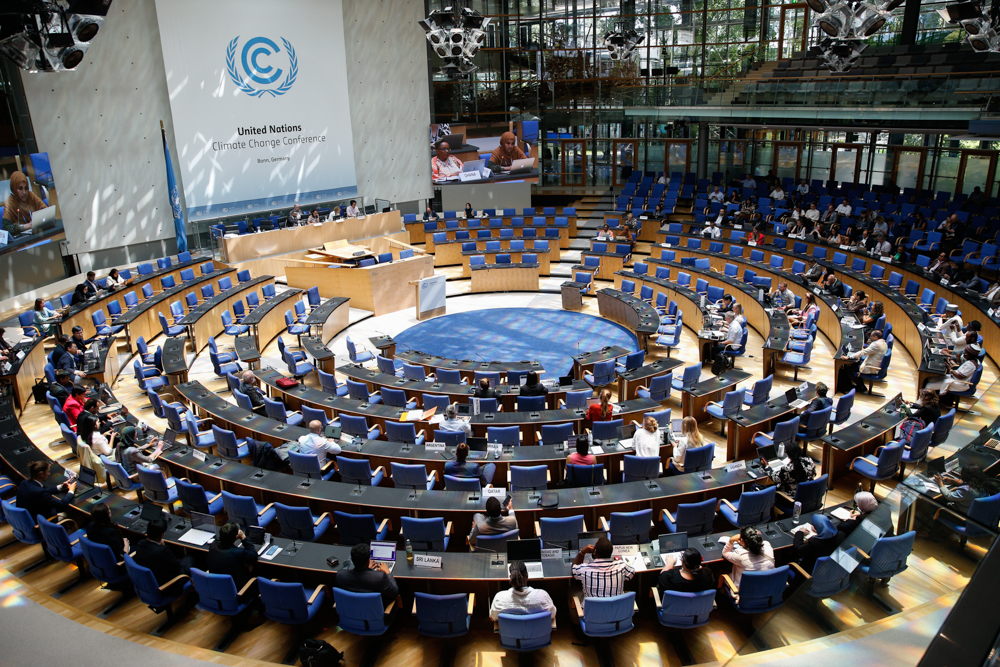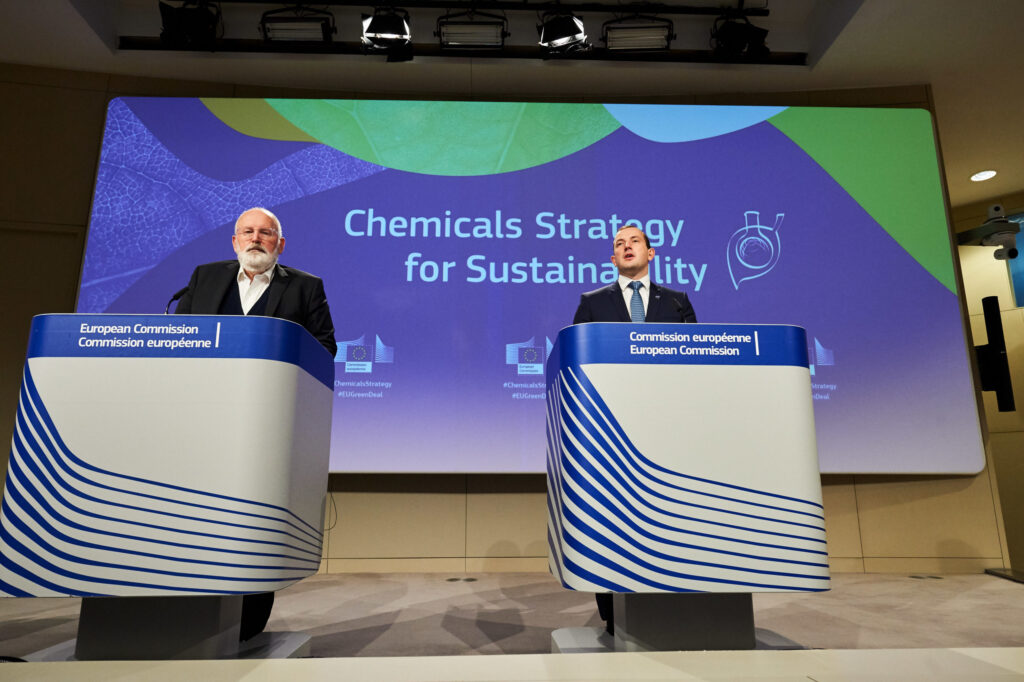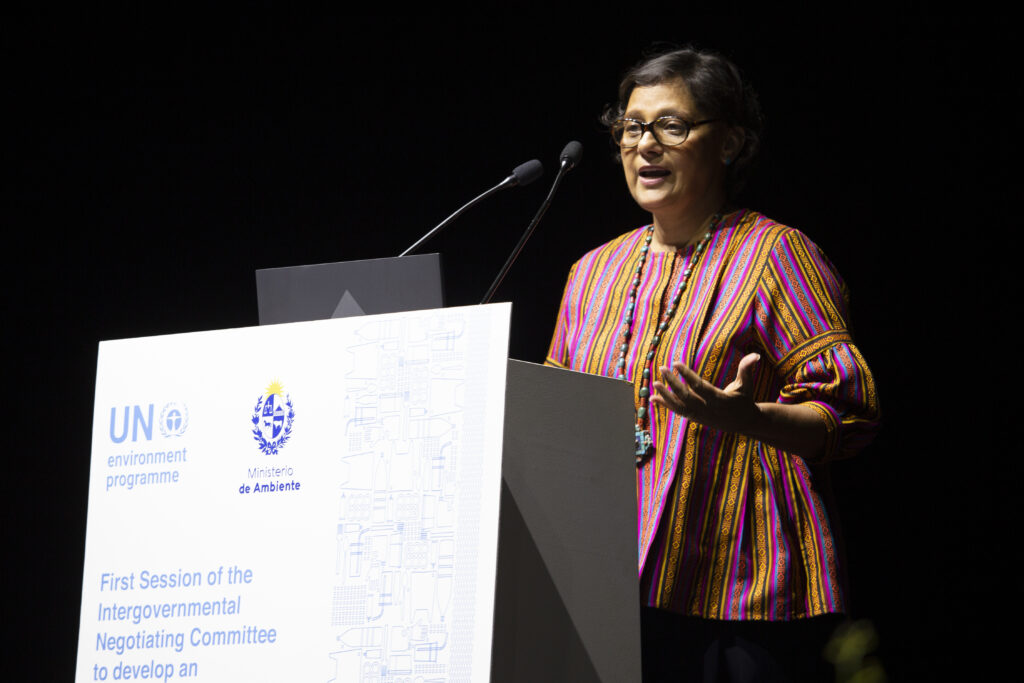Using key regional and international fora, CIEL works to protect both current and future generations from exposure to toxic substances by creating greater chemical transparency, stronger regulations, and phasing out “forever chemicals.”
Basel, Rotterdam, Stockholm Conventions (BRS)
- States banned three forever chemicals: methoxychlor (a pesticide), Dechlorane Plus (a chemical flame retardant found in the blood of waste recyclers), and UV-328 (a UV-stabilizer dispersed by plastics debris and seabirds). The recognition of plastics debris as an effective, long-range transboundary carrier of persistent organic chemicals (POPs) is particularly significant and historic. As CIEL highlighted in new research, ‘Breathing Plastics,’ microplastics are ubiquitous in the environment and circulate around the world.
- Plastic waste amendments are being implemented at the national level, ensuring the reduction of plastic waste export to countries that don’t have the capacity to safely and sustainably manage them.
- CIEL and advocacy partners placed waste containing nanomaterials on the BRS agenda.

Strategic Approach to International Chemicals Management (SAICM)
- Through active engagement with government delegations and our NGO partners, CIEL continued to push for an agreement on issues of concern, including endocrine-disrupting chemicals (EDCs), nanomaterials, women and gender, and more.
- CIEL supported a broad NGO coalition’s effort to ban Highly Hazardous Pesticides.
- We are actively driving momentum behind a globally coordinated tax on chemicals that would make polluters pay and ensure there is just, sustainable, and predictable funding for managing toxic chemicals.

EU’s Chemicals Strategy for Sustainability
- The EU introduced EDCs in the rules on how it classifies and communicates about the hazardous properties of chemicals, setting a precedent for global adoption.
- The Chemicals Strategy for Sustainability promised legislation to end the double standard of producing pesticides and chemicals banned in Europe for export to countries with weaker regulations. A coordinated campaign, grounded in CIEL’s legal analysis, is ongoing to hold the EU accountable to its promises.

United Nations Environment Assembly (UNEA)
- With the International Pollutants Elimination Network (IPEN) and key scientists, CIEL actively engages in the negotiation of the Science-Policy Panel on chemicals, waste, and pollution prevention to ensure that it supports action on chemicals and is protected from conflicts of interest.
- First negotiating sessions of the plastics treaty conducted (see page 17).

